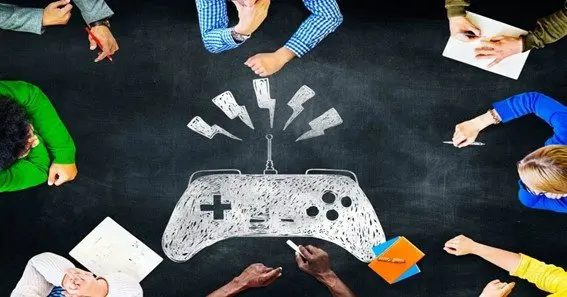Introduction
Even today, video games fascinate us in every way. We adults also like to spend our free time in sports, not just for children but also for adults. Many parents don’t want their children to spend most of their time playing, but we think that playing video games is suitable for the growing child, but the time, however, should be limited.
If we think of these video games more psychologically, A student plays the game using different skills and information about the game. The expertise and skills that a student applies to the game make them win the game, and even when they lose at the game, they don’t give up.
Also Read : Teenagers Study Abroad: How Does It Work And What Are the Benefits?
From the above example which we gave about Video games, this is quite clear that video games, in general, can be a source of motivation for the educators or parents at home. It can encourage their students or children never to give up, even if they fail their exams, just like the game.
Also Read : Choosing a good options broker in London
Since school management systems are operating LMS portals to conduct online classes, one thing has become very popular, especially after the advent and advanced usage and application of modern online education. That is introducing students to learning methods that involve games.
Yes, today in this article, we will discuss with our readers the different ways in which a classroom can be gamified.
Adapt old school games for classroom use
Games like Bingo, dice, and Cards have been with us since our childhood times. If games like these are adapted for classroom programs, grasping different concepts will be easy for students with different learning styles. Suppose you are studying a chapter called “Probability” from maths subject, which many students dislike as they think that math is for geniuses. If the game of cards is used to denote the possibilities and make the student understand the problems being asked on probability. In that case, it will bring a much greater understanding of the concept.
As we mentioned above, for some students, maths is tricky, and they often consider the subject as some subject being made for geniuses. Let us make this very clear to them that maths is not the subject of geniuses. Suppose you practice regularly and devote more time to the subject. In that case, you will eventually notice your improvement in both grades and the application of quantitative aptitude in daily life.
Other games like Bingo can help English learners by making their vocabulary strong. It is entirely impossible to know the meaning of all the words in English. Therefore games like this help us think and memorize the different words possible from a specific set of alphabets.
Click here – Teenagers Study Abroad: How Does It Work And What Are the Benefits?
Creating quest
Creation of quest is always advised for helping educators or learners increase the level of engagement and activeness of students involved. A quest is generally a mission with an objective already set. It can increase students’ engagement in educational practices and other activities provided to work well in groups or individually in the projects or other valuable programs organized at the school/college level.
Battle it out
You must constantly fight the devil to save humanity. Students get fascinated by dialogues as such. To battle with the boss, who we denoted as the evil, must be defeated by a hero, individually or in a group, to save humanity. Games like this psychologically impact a student’s mind, and they are more inclined towards positivity.
Gamification of studies does not mean making studies a game. Still, it is actually about transforming the traditional classroom environment according to the present-day ongoing methodology, online learning, or E-learning.
Click here – Choosing a good options broker in London

